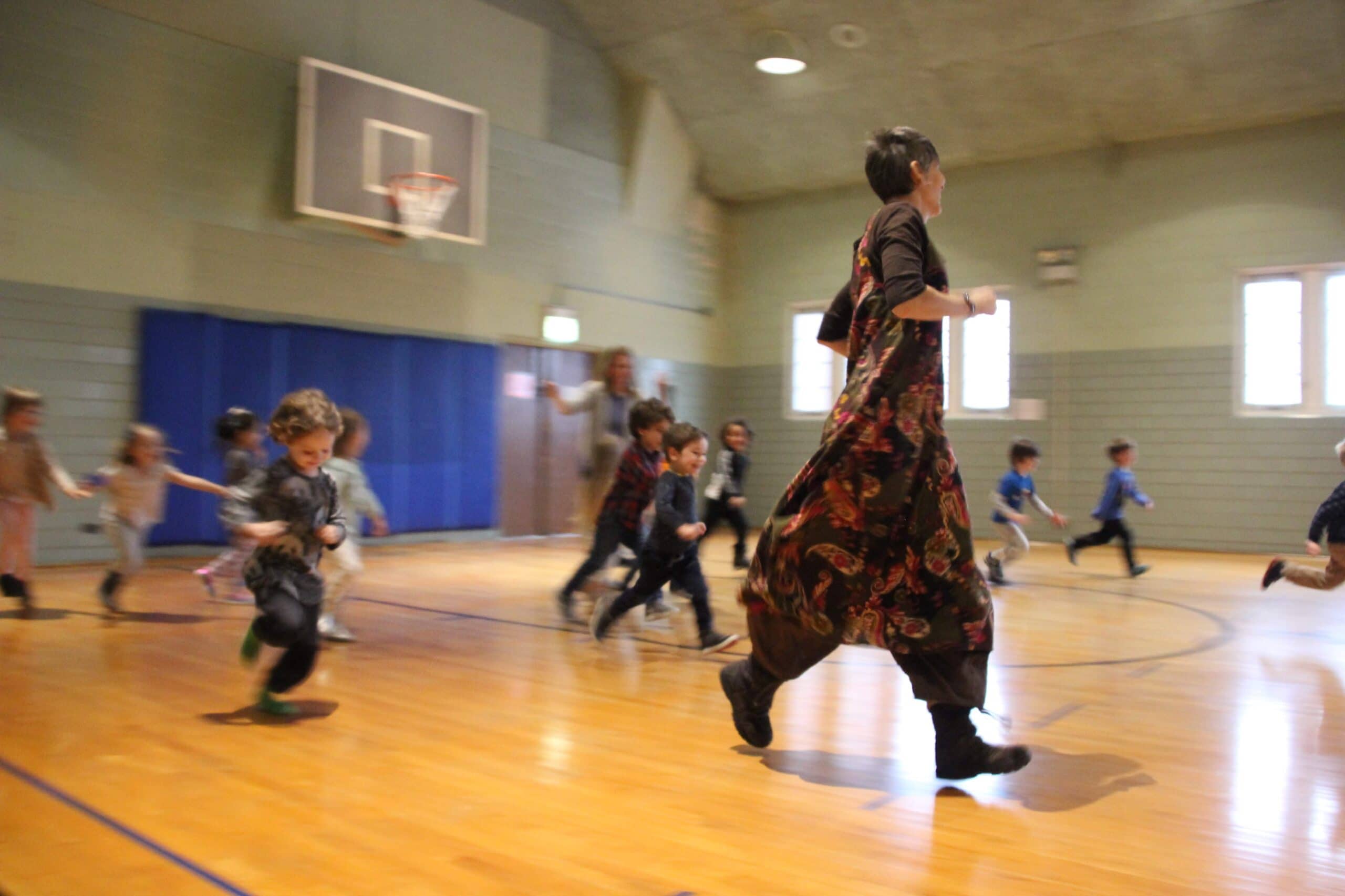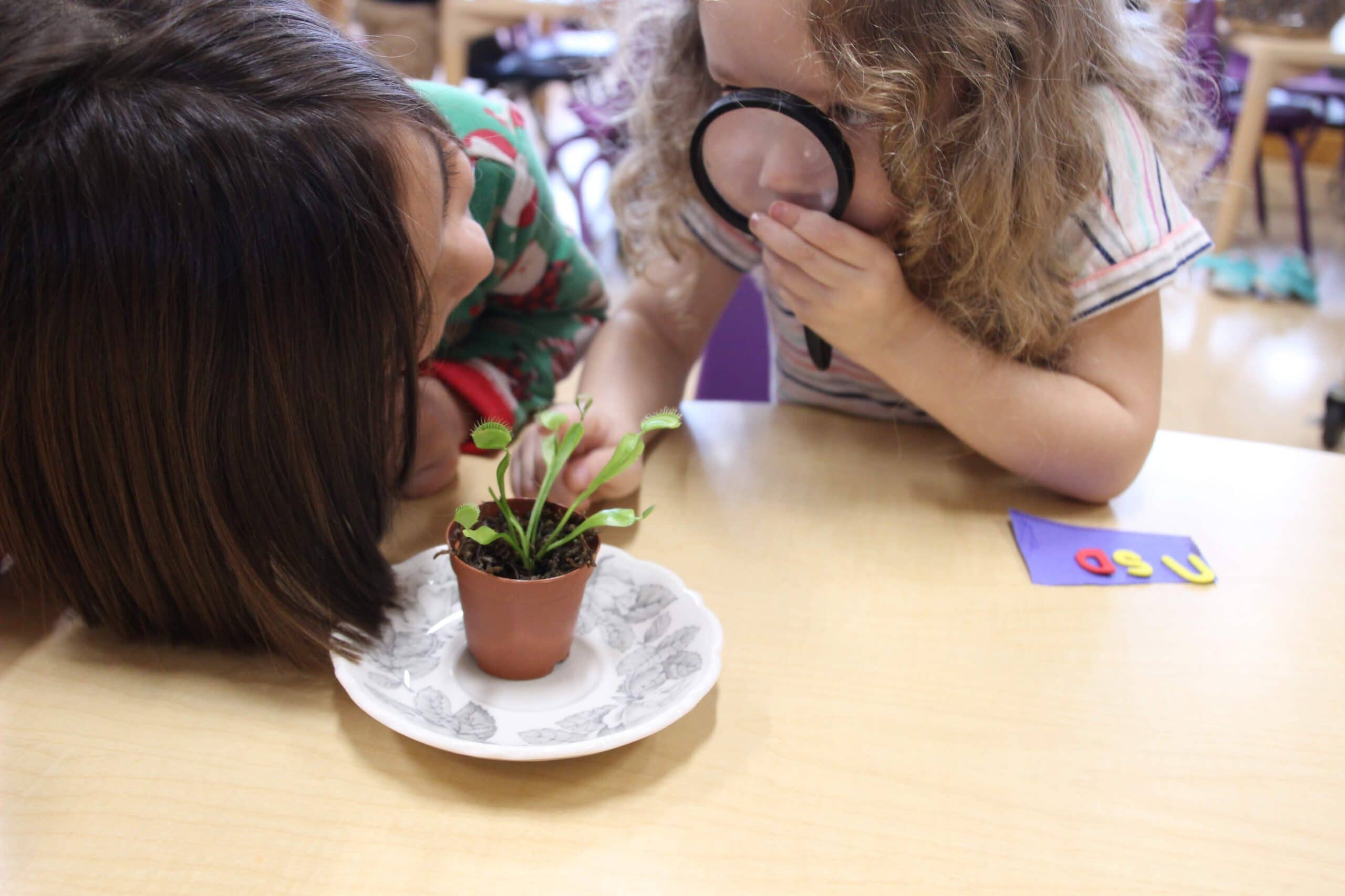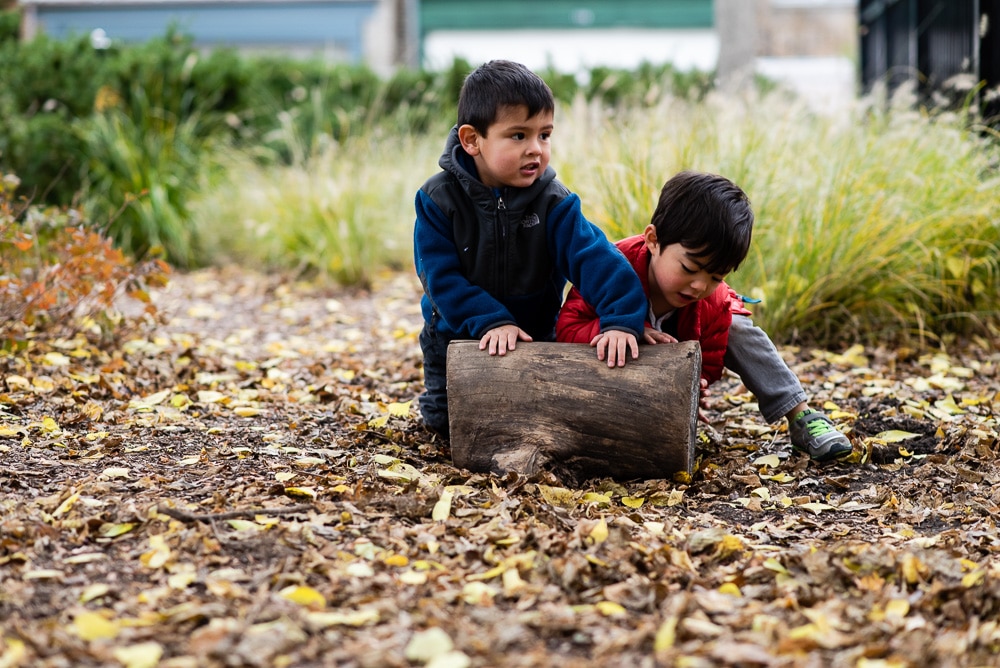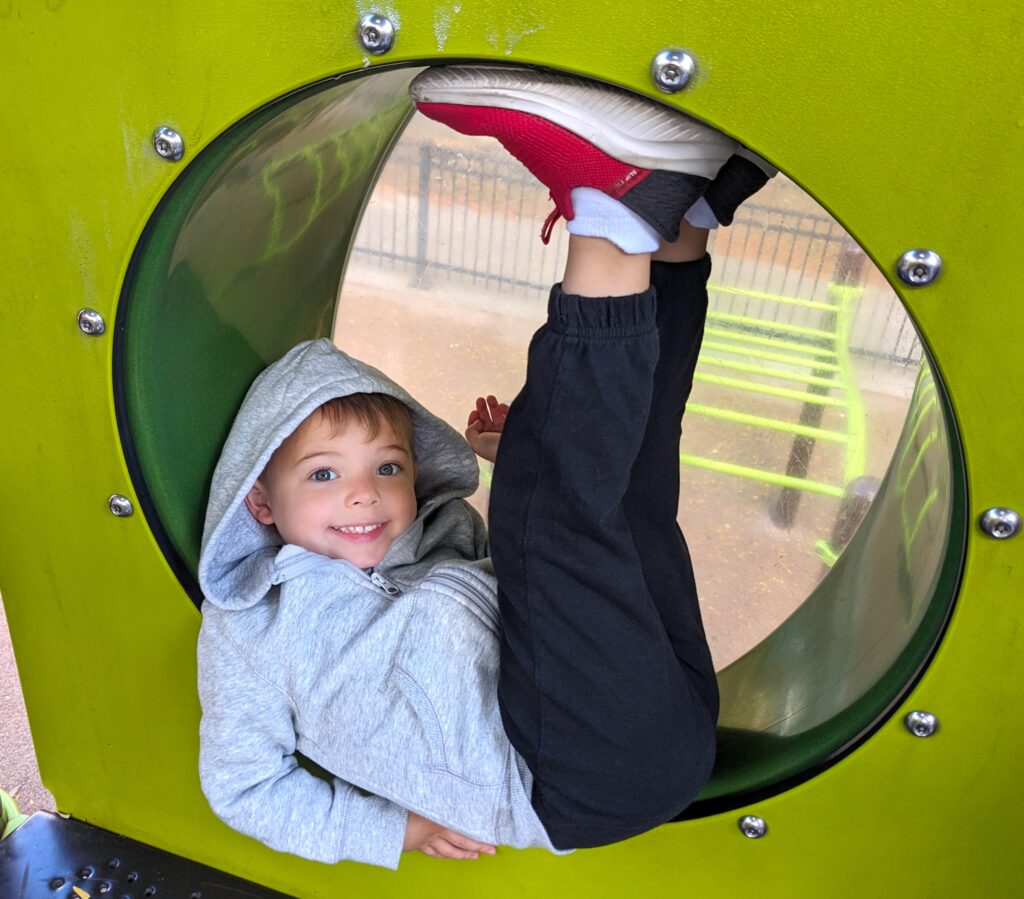“Play is often talked about as if it were a relief from serious learning. But for children play is serious learning. Play is really the work of childhood.”
Fred Rogers
Why Play Matters
You’ve seen the tagline here at FTCNS letting you know that we are a PLAY BASED SCHOOL! But what does that mean, exactly? And more importantly, why is it important for your child’s development and education? Well, let’s break down why play matters and all the learning that’s going on right before your eyes.
In a play-based program such as ours, you won’t see teachers giving rote instruction on concepts such as letters, numbers, shapes, or colors. Instead, you will see children sorting nature bits or blocks (patterning and math!), pouring water or sand through tubes at the sensory table (science!), painting at the easel (colors and shapes!) just to name a few of the fun, play-centric activities we enjoy in each class. Supported by teachers and parent volunteers who are willing to sit down with them as they play, listen to their ideas, and have conversations with them, children are able to extend their comprehension of how the world works in a concrete and truly enjoyable way.

Literacy Development
Another important aspect of education in the early years is literacy development. Teachers in our program encourage a child’s emerging curiosity about reading and writing by setting aside a special space in the classroom, stocked with a wide array of writing materials to explore and use creatively. Teachers work continually to infuse the entire classroom environment with print, showing students many meaningful ways of using writing such as making charts, lists, labels and schedules of daily activities.
The teachers read to children regularly in both large and small groups as well as individually. They also encourage storytelling and engaging with and exploring stories. Through play and with the support of teachers, children can explore letter recognition, letter sounds, symbolic thinking, rhymes and other early literacy skills, which build a foundation for eventually becoming enthusiastic readers and writers.

Social Emotional Learning
Finally, we must remember that school (and life) readiness skills are not merely a matter of knowing letters and numbers. It is equally important, perhaps even more so, that children have positive social and emotional experiences and develop strong higher-order cognitive skills. Each day, our teachers focus on helping children learn how to function well as a member of a group, make friends, and acclimate to the structures and routines of school.
Imbedded in every aspect of our program are opportunities for children to develop executive function and critical thinking skills such as articulating and exchanging ideas, listening to other points of view, reconciling differing opinions, inventing novel ways of solving problems, and planning, strategizing, and organizing. Through play these skills emerge naturally in preschool children, especially when they are given the time and space to experiment and explore, and to encounter problems and solve them with the support of sensitive adults.
Come See Why We are a Preschool Where Play Matters
There are so many reasons why a play-based early childhood education is important in supporting the development of your whole child so that they are ready for their next step after preschool. At our core, calling ourselves “play-based” reflects our philosophy that children learn best through relevant, meaningful and concrete experiences. Each year, we are proud to send our play-based-educated oldest students off to elementary school, knowing that they have great motivation to learn, highly developed critical thinking and social skills, and a strong sense of confidence, self-reliance, and emotional well-being.
You can read about our curriculum and how this plays out in our classrooms each day to understand why play matters.
See Us in Action!
Take a look at our Admissions Video to see what makes Families Together A Preschool Where Play Matters!
Articles on Play-Based Learning
The Brookings Institution
“Tracking the winds of change on the American education policy landscape: The emergence of play-based learning legislation and its implications for the classroom”
The New York Times
“The Building Blocks of a Good Pre-K”
University of California Center for Cooperatives
“Best Kept Secret: Cooperative Preschool Programs”


